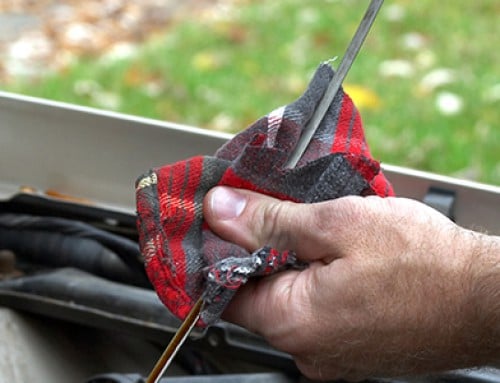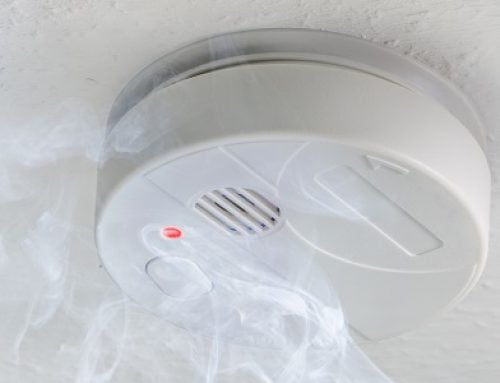As a brewery owner, you probably prefer focusing on perfecting your signature brew rather than researching insurance coverage. However, the right insurance is critical for even the smallest nano-brewery, especially as you look to expand your distribution or grow your operations.
Whatever the size of your brewery, specialized insurance can help protect your assets from risks such as slips and falls, theft, vandalism, natural disasters, financial loss, or reputational harm. Specialized coverage can also protect your brewery from industry-specific risks like equipment breakdowns, product recalls, cyber threats, and transportation risks. Without the right insurance, you could be on the hook for costly lawsuits and other expenses that could interrupt or even shut down your business.
Risks faced by breweries
Brewery operations rely on specialized equipment and machinery. If critical equipment like grain mills, or boilers breaks down, it can disrupt production and impact your bottom line. Similarly, maintaining rigorous quality control and diversifying your supplier base is vital to avoid production interruptions. As a brewery grows, the risks and the need for a strong risk management strategy increase.
Mitigate brewery risks with insurance
Owners and operators of breweries face unique risks that could significantly impact business operations. Here are essential insurance types to consider:
Commercial property
Commercial property insurance can help recover costs if your building, equipment, furnishings, inventory, and/or supplies are damaged or destroyed during a fire, flood, or other natural disaster, or because of theft or vandalism.
Brewery safety tips: Conduct regular property inspections and review fire safety protocols to protect against unexpected damages.
Commercial liability
Like any business, you’re at risk of liability claims, such as slips, trips, and falls. But in a brewery, those types of hazards could be lurking around any corner. Water is an essential component of the brewing process, and that can lead to wet floors around vats. If you run a brewpub, you have the additional risk of spilled drinks, which can make the floor sticky and slippery. If an employee or customer slips and falls, it could result in a costly lawsuit.
Brewery safety tips: Breweries have high standards when it comes to health and safety; without them, it could affect the quality of your brew. It’s important to keep on top of regular housekeeping, such as mopping up spills as soon as they happen. Commercial general liability (CGL) insurance can also help safeguard your brewery if you’re found legally liable for bodily injury or property damage to a third party on your property.
Quality control
Problems during brewing, bottling, or storage can compromise product quality. Any issue with quality control — whether in the brewing, bottling, or storage process — can lead to inconsistent quality or contaminated product. For example, microbial contamination due to improperly sanitized equipment or inconsistent fermentation may spoil batches. The quality of ingredients such as malt and hops is also critical to maintaining a consistent product.
Brewery safety tips: Maintain rigorous quality control and vet third-party vendors or logistics providers. Also diversify your supply chain so you’re not overly reliant on single suppliers.
Equipment breakdown
Your business can’t operate without specialized brewery equipment and machinery. Whether it’s the result of a natural disaster (such as flooding from a storm) or a sudden, accidental failure, equipment breakdown means production comes to a standstill. Not only could repairs or replacement be costly (especially if it’s hard to track down a specialized technician), but a halt in production could cause significant financial losses. Malfunctioning equipment could also create safety issues for your employees.
Brewery safety tips: Practice preventative maintenance (scheduled maintenance and inspections) and predictive maintenance (which predicts points of failure) with equipment and machinery. Equipment breakdown insurance can also help protect you from costly repairs and production delays if there’s a sudden, accidental breakdown of essential equipment or machinery.
Business interruption insurance
If covered event forces you to temporarily shut down operations, such as equipment breakdowns, fire, or natural disasters, business interruption insurance can help replace lost income or cover ongoing expenses.
Brewery safety tip: Regularly update your business continuity plan and review your insurance coverage to make sure it aligns with your brewery’s growth and operational risks.
Cyber risks
Brewery owners and operators may not consider themselves a likely target for cybercriminals — but any business that stores financial information (such as customers’ credit card numbers) and has trade secrets or intellectual property (such as a secret beer recipe) is at risk of data breaches, ransomware, supply chain attacks, and other types of cyber risks that could disrupt your business and damage your brand.
Brewery safety tips: Keep up-to-date with anti-malware software, regularly back up your data, and train employees to understand phishing (when cybercriminals attempt to trick you into giving away sensitive data such as passwords or downloading a malicious link in email, texts, messaging platforms, and even phone calls). Cyber insurance can help you cover costs associated with data recovery and customer breach communications in the event of an incident.
Product recalls
If a spoiled or mislabeled batch of beer hits store shelves, it will result in a product recall — even if a third party was responsible for the spoilage. For example, many smaller breweries rely on third-party logistics providers or warehousing companies for off-site cold storage and distribution. If the temperature isn’t consistently maintained in a cold storage facility (or in a cold delivery truck), your beer could be compromised. Even mislabeling could create an issue. The logistics of handling a product recall can be complex and costly, but it can also damage your brand’s reputation — and you may have the additional expense of hiring a public relations firm for damage control.
Brewery safety tips: Develop a product recall plan in advance so if a situation does arise, you’ll know what to do — and you can immediately notify distributors and customers. You may want to have a PR firm at the ready if you need to use their services. Product recall insurance can also help you cover the costs associated with recalling your product due to spoilage, contamination, or other issues.
Liquor liability
For breweries that offer tastings or run a taproom, you have the additional risk of liquor liability. If someone drinks too much and ends up injuring themselves or other people on your property, you could be held liable.
Brewery safety tips: Make sure employees are trained to avoid overserving; most provinces have mandatory training programs, such as Smart Serve in Ontario, Serve it Safe in Manitoba, ProServe in Alberta, and Serve it Right in B.C. Liquor liability insurance can help cover damages caused by customers who consumed alcohol on your premises (or allege they were over-served).
Commercial auto insurance
If your brewery uses vehicles to transport goods – whether it’s delivering kegs to pubs or picking up ingredients from suppliers – commercial auto insurance can help cover damages in the event of an accident.
Brewery safety tip: Ensure all drivers are properly licensed, trained, and maintain safe driving practices to help protect your business on the road.
Keep your business safe with brewery insurance
Unfortunately, you can’t always control what happens to your business. You can, however, control how prepared you are. Having the right protection in place can make a huge difference. To learn more, visit our brewery insurance page today.
This blog is provided for information only and is not a substitute for professional advice. We make no representations or warranties regarding the accuracy or completeness of the information and will not be responsible for any loss arising out of reliance on the information. Terms, conditions and exclusions apply to coverage. See policy for details.






